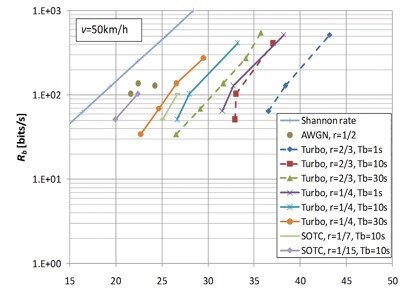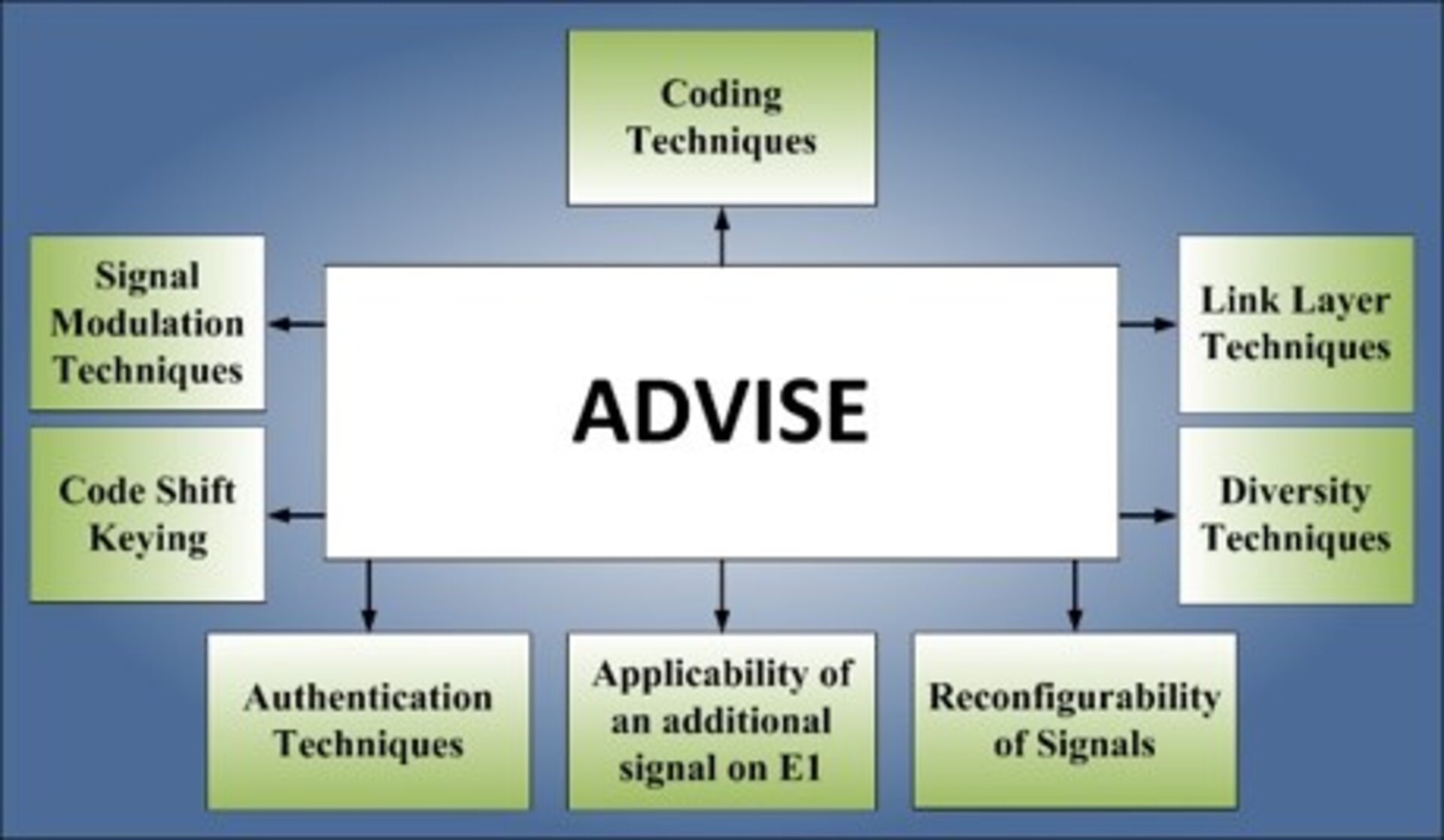Advanced Signal-In-Space Techniques (ADVISE)
| Programme: | TRP | Achieved TRL: | 3 |
| Reference: | T606-008ET | Closure: | 2017 |
| Contractor(s): | Universität der Bundeswehr München (DE), WISER S.r.l (IT), ENAC (FR) and Johaneum Research (AT) | ||
Demand for new services and more challenging applications of GNSS systems require a continuous improvement of the Signal-in-Space as the primary enabler for any new capability. Key directions for investigation are advanced modulation techniques to improve the spectral efficiency and to accommodate higher symbol rates. development of new data encoding techniques on physical and link-layer helps to increase the signal robustness and to offer navigation services in difficult environments.
Objectives
The scope of the activity was to investigate advanced modulation and data delivery techniques for future radio navigation. The advanced techniques for consideration in this study were taken from state-of-the-art techniques already in application or being investigated in the field of radio communications networks.
Demand for new services and more challenging applications of GNSS systems require a continuous improvement of the Signal-in-Space as the primary enabler for any new capability. Key directions for investigation are advanced modulation techniques to improve the spectral efficiency and to accommodate higher symbol rates , the development of new data encoding techniques on physical and link-layer helps to increase the signal robustness and to offer navigation services even in difficult environments.

Achievements and status
Complex modulation and data delivery schemes were evaluated and their applicability to satellite navigation was assessed. Different signal modulations have been analyzed (OQPSK, BOC, SRRC, CPM, multicarrier, FMT, CSK, FH) in conjunction with advanced coding techniques to improve provision of better satellite navigation services and the data demodulation performance in challenging environments (Turbo codes, Super-Orthogonal Turbo codes, Low Density Parity Check codes, SC-LDPC, link layer). The activity also produced related MATLAB tools for simulation and analysis of Signal In Space techniques.
Benefits
The activity has analysed modulation and coding techniques and created innovative solutions for the provision of better satellite navigation services in challenging environments as well as MATLAB tools for comparative analysis of techniques.
Next steps
The next step is to adapt and incorporate the proposed techniques for future radio navigation signals (e.g. in the next Galileo generation). This will include carrying out feasibility studies of the developed techniques while taking into account payload and receiver complexity.






